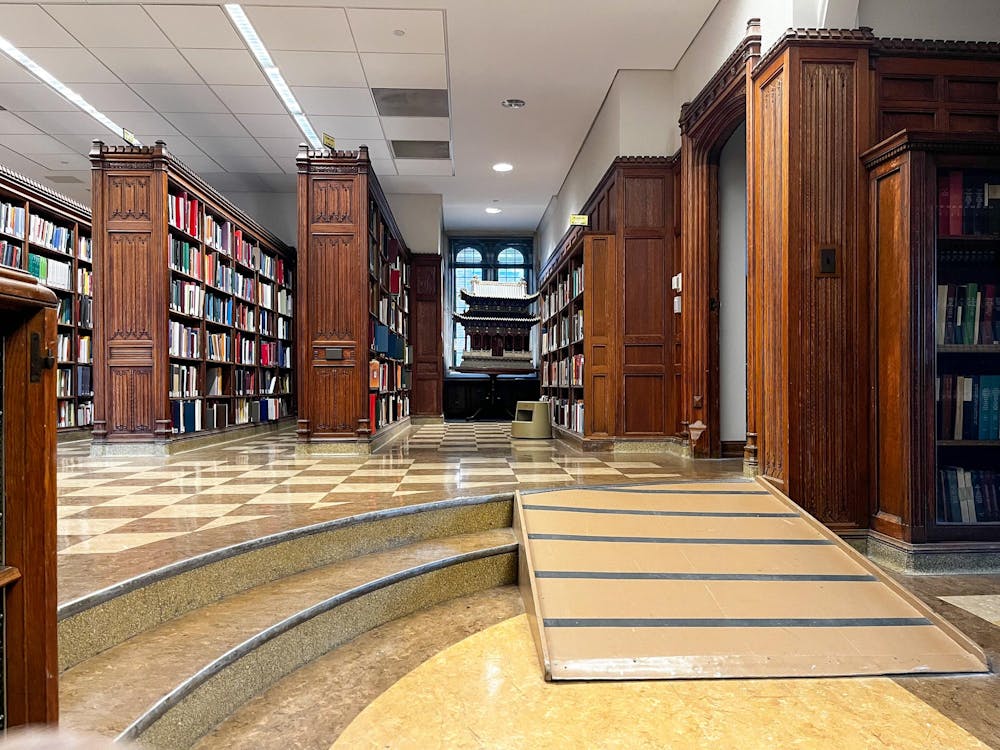The following is a guest contribution and reflects the author’s views alone. For information on how to submit a piece to the Opinion section, click here.
Ten years ago, Princeton’s Board of Trustees established a special committee to consider the usage of Woodrow Wilson’s name at Princeton. That work resulted in the ultimate removal of Wilson’s name from the School of Public and International Affairs, and the creation of a “Committee on Naming” of the Council of the Princeton University Community to consider similar future issues.
One naming that especially deserves consideration has to be Princeton’s “Atatürk Professorship in Ottoman and Modern Turkish Studies,” which is named for Kemal Atatürk, the founder of modern Turkey and anti-Armenian figure that inspired Nazi ideology. The Princeton professorship appears to be the only such named chair in the country that bears Atatürk’s name. While no professor has held the title since Atatürk Professor of Ottoman and Modern Turkish Studies emeritus Heath W. Lowry departed in 2013, the position remains open for new candidates. Just as Princeton exempted Wilson’s name from celebration due to his racist ideologies, it must do the same for the Atatürk Professorship: It must be retired.
Last year, historian Taner Akçam came to Princeton to discuss the Armenian Genocide. Relatives on both my father’s and mother’s sides were among the 1.5 million Armenians killed in this effort to establish an ethnically homogeneous state by the Turkish Empire in the early 1900s.
In a section on anti-Armenian racism, Akçam showed a slide with the following quote from the eponymous Kemal Atatürk: “The Armenians occupied our craft guilds (sanat ocaklari) and adopted an attitude of [being] the owners of this country. ... The Armenians have no rights whatsoever in this prosperous country. Your country belongs to you, to the Turks … The Armenians and others have no rights here whatsoever.”
Concerns surrounding Atatürk don’t stop with racism. He arguably inspired the fascists of World War II that came after him. In his book “Ataturk in the Nazi Imagination,” Stefan Ihrig cites Hitler, who said that “Atatürk was a teacher; Mussolini was his first and I his second student.”
Atatürk also has notoriety in the history of genocide. Although he didn’t participate directly in the Armenian genocide, he did end the trials of the genocide perpetrators, as described in politics professor Gary Bass’s book “Stay the Hand of Vengeance.” So while Atatürk originally called the genocide “a shameful act,” his later actions normalized genocide, transforming it into an acceptable form of statecraft — a lesson certainly taken to heart by his self-described student.
The Trustee committee’s report noted, “In the course of a thorough and wide-ranging review, it became clear that the controversy surrounding Wilson’s name was emblematic of larger concerns about the University’s commitment to diversity and inclusivity.” Similarly, the honoring of Atatürk is emblematic of a troubled relationship between generations of Princeton professors and Armenian students.

Decades ago at Princeton, the late Ed Tejirian ’57 — a friend of mine — was presented a view on the Armenian genocide by former professor Lewis V. Thomas in his book, “The United States and Turkey and Iran”: “Had Turkification and Moslemization not been accelerated there by the use of force, there certainly would not today exist a Turkish Republic, a Republic owing its strength and stability in no small measure to the homogeneity of its population.”
Listening to this narrative — one that normalizes the Turkish empire’s violent expansionism as a tool for national security — Ed later told me, “As an undergraduate, I didn’t feel that I could tell him ‘Professor, would you listen to yourself?’”
The Princeton Armenian community’s concerns continued thereafter due to the invitation of certain guest speakers on this campus. Aram Arkun ’81 wrote a column for the ‘Prince’ on April 24, 1981 titled “On the Armenian genocide”: “The Turkish government still denies that the massacres ever happened, and Princeton became a part of this historical distortion when Turkish Foreign Minister İlter Türkmen spoke here recently.”
But the troubles really took off with the establishment of the Atatürk Professorship in 1993 with a $750,000 grant from the Turkish government, and its filling by a lobbyist for that government. It was the subject of articles in, among other places, The New York Times and here in the ‘Prince.’ Deserving special mention is a 2005 ‘Prince’ article which quotes Darren Geist ’05 noting “‘Princeton’s position as a center for Armenian Genocide denial.’”

To this day, Armenian Princeton students have continued to speak out against the lack of recognition of the Armenian genocide by professors at Princeton. Former Princeton Armenian Society Co-President Katya Hovnanian-Alexanian ’26 previously argued in these pages that the University must properly categorize this crime against humanity.
There have unfortunately been numerous other examples over the decades. But this partial list shows that the attitude towards Armenians on campus has been a matter of sustained interest among Armenian Princeton students. Having a chair named after a virulent anti-Armenian racist is emblematic of the troubling legacy that engenders that unwelcome interest. It is well past time, then, that Princeton retired the Atatürk Professorship.
Greg Arzoomanian is a member of the Class of 1979. He may be reached at greg[at]arzoosoftware.com.
Please send any corrections to corrections[at]dailyprincetonian.com.








